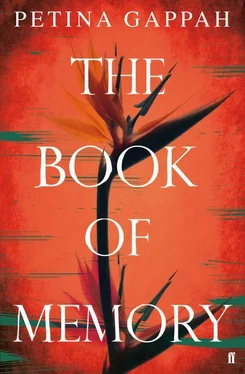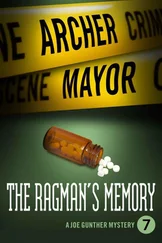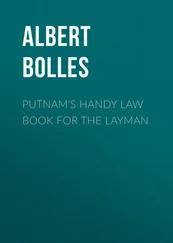Lloyd used to say that her voice was exactly like Sybil Fawlty’s. ‘She sounds,’ he said, ‘like a seal being machine-gunned.’ But I was reading Stephen King by the bucketful, and privately thought that she spoke like the wife in Pet Sematary after she had been brought back to life, or like her voice was being filtered through a cement mixer.
Theirs was a highly stylised simulacrum of England. Their garden boys sweated as they trimmed their bushes into topiary animal shapes. Val Compton-Jones had yet to meet an indigenous tree that she did not want uprooted and replaced with a foreign import. Liz made sour observations about all the water that the trees absorbed, how their wretched gums and firs lowered the water table, how they had long roots, and took more water than they should.
They held carols by candlelight at which children lisped about chestnuts and sang about the holly and ivy, and St George’s Day celebrations in which they chewed overdone roasts. At their parties, the children played croquet, and the adults tennis, the players in blinding white, as if they were just minutes away from stepping onto Centre Court. They would have fled in horror from the real England, with its Indians, Pakistanis and Jamaicans.
Lloyd would not normally have gone to the Compton-Jones’s summer party, but he had been talking for some time about how I had no friends in the valley. Bridget Compton-Jones was at the Convent with me, but I had never seen her outside school. When I told him that I would rather stay at home, he said, ‘Just think of all the other children who will be there.’
It seemed to have escaped him that I met any number of other children during the week. And that I never actually enjoyed the youth dances he drove me to at the Anglican Cathedral, where I stood drinking Fanta while people danced badly to Dire Straits and David Scobie. And I was seventeen, after all; in another year I would be at university. I knew about existentialism and solipsism. I had read Sartre and was reading Camus.
The only attraction of the party was the drinks. I was much more interested in tasting the Pimm’s than anything else.
I was working out how I could get a drink without Lloyd noticing. I headed for Liz. She had elbowed a waiter, delaying him so that she could finish the drink she held and take another before he moved on. ‘Tally-ho,’ she said in an exaggerated accent. ‘You are here, then, are you?’
I offered to hold her drink for her. She picked two from the tray and handed them both to me. ‘In the language of the old country,’ she said, ‘chin-chin.’
She knocked back her glass and handed it me, taking one of the two full glasses that I held. I could not resist drinking from the remaining glass. It was just as delicious as it looked. I drank it in quick gulps. A heady feeling began to sweep over me. Everything was lovely and green; the hedge animals looked as though they were about to stretch and prance across the lawn. The laughter seemed louder than any laughter I had ever heard. The grass was dazzling green. The powder blue of Val Compton-Jones’s eyeshadow was as one with the sky. She dazzled, they all dazzled, I dazzled.
It was in this state that I saw Zenzo. He was the only other guest there who was not white. The only other black people there were the staff: the maids in colourful uniforms, the men in white shirts and black trousers, carrying glasses and food.
He stood in jeans and a black tee-shirt with Bob Marley on it. He wore his hair in dreadlocks. I stared at him as though my eyes were on stalks. He had white eyes and a smile as white as the tennis clothes around him. I could not take my eyes away from his hair.
Dreadlocks are much more ubiquitous now than they were then, so you may not understand how shocking it was to see a man in dreadlocks at a party in Umwinsidale. Dreadlocks were what the Bob Marley on his shirt wore: they belonged to another world, of Rastafarianism, which nobody understood, but everyone frowned on.
I had only ever seen two people with dreadlocks: the homeless man who slept at the Post Office in town and the son of one of MaiWhizi’s brothers, who had once visited her. That nephew had dreadlocks, and everyone had crowded around him because MaiWhizi had said he did not eat meat. No one in the township actually believed that there was a person alive who could refuse to eat meat; Nhau got Whizi and her sisters to watch him to see if he ate meat.
And here before my eyes was this beautiful young man with dreadlocks. I believe that I would have noticed him even without the dreadlocks because he was the most beautiful person I had ever seen. It seemed to me that he was standing a little apart, watching the party and taking it in. The people around him did not seem to know what to make of him.
I looked around to see whom he could be linked to.
When Val Compton-Jones introduced him to Lloyd, I made sure to get closer. I walked up to them and put my hand in Lloyd’s. I was not normally this demonstrative, and Lloyd looked at me. He squeezed my hand as he said, ‘Have you exhibited much?’
‘Have you exhibited much?’ I said.
Lloyd shot me a probing look.
Before the man could talk, a woman came up to him. She put her arm through his. Young as I was, I recognised it for what it was, an act of claiming. And she was so old, I thought, so old you could see wrinkles around her face.
They introduced themselves as Sigrid and Zenzo. They had just moved into Hazlemere Cottage, the small house on the Compton-Jones’s estate. She was a German economist. She worked for a German foundation in town, she said.
He was an artist from Bulawayo.
I knew then, of course, about sex. Sister Gilberta in biology had told us all about it in clinical, dry-as-dust terms, the spermatozoa, and fallopian tubes, complete with line drawings. Jackie Collins, Harold Robbins and Jacqueline Susann had filled in the rest. That this beautiful young man, Zenzo, should be with old Sigrid, that he should be making her melt and tremble while thrusting his manhood at her and filling her uterus with spermatozoa, which was expelled if there was no conception to form a zygote, seemed unutterably grotesque. He was young, as I would find out, only twenty-four, and she was thirty-seven.
He was beautiful; she was not.
They moved on to join another group and my eyes followed them, or at least him. While Lloyd was distracted, I downed his Pimm’s, too.
The next thing I remember is waking up in my room. Lloyd had carried me to the car, as I had passed out.
*
I saw him again when I was riding. I had been riding for more than three years now, and Liz trusted me out on my own. He was walking down Umwinsidale Drive. I recognised him at once. As I nudged Pugsley into Hazlemere, preparing to go home, I saw him.
‘The light here is good,’ he said. ‘This is how it must have been for Vermeer in Delft.’
I had no idea what he was talking about, but I memorised the names. I went to Lloyd’s Encyclopaedia Britannica. The next time that I saw him, I said, very quickly, ‘Vermeer was born in Delft.’
I need not have bothered with Vermeer. He had been looking for me, he said, he had walked this way hoping that I would ride past. ‘I want to paint you,’ he said.
‘Will I have to take my clothes off?’ I said.
He laughed and said, ‘It is not necessary.’
I saw at once that this was the only way I would ever see him on my own. Surprised by my own boldness, I said, ‘Do you want to start now?’
At his laugh, my heart plummeted down into my stomach, where it turned to water. He was busy at that moment, he said. We agreed to meet the following day. It was the holidays, so I had the whole day free.
The next day, I walked down the valley and up to Hazlemere Manor. He was waiting in the cottage. He smoked. Then he said, come here, and he held and then kissed me playfully, and then not so playfully. I was caught up in the smell of him, a mixture of cigarette smoke and sweat, and something else, a smell that seized all my senses.
Читать дальше












